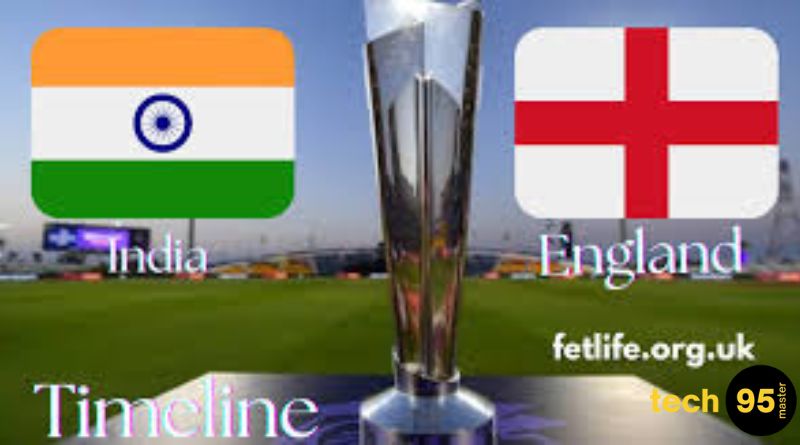The rivalry between the England cricket team and the India national cricket team is one of the most iconic and historic matchups in international cricket. It spans over nine decades, filled with memorable moments, outstanding performances, and dramatic encounters. From the colonial era to modern times, these two cricketing giants have locked horns in a series of test matches, one-day internationals (ODIs), and Twenty20 matches. In this article, we take a closer look at the England Cricket Team vs India National Cricket Team Timeline, tracing the evolution of their rivalry and key milestones.
Early Encounters: 1932 – The Beginning of a Historic Rivalry
The cricketing journey between England and India began in 1932 when India, still under British rule, was invited to play its first-ever Test match at Lord’s, often regarded as the “Home of Cricket.” This match marked India’s entry into Test cricket, making it the sixth nation to be granted Test status by the International Cricket Council (ICC).
The one-off Test match was played in June 1932, where England emerged victorious by 158 runs, but India’s performance was commendable for a debut team. Led by CK Nayudu, the Indian side showcased raw talent, but they lacked the experience to overcome a seasoned English team. Despite the loss, the game was a significant milestone, setting the foundation for the long-standing cricketing rivalry that would follow.
Post-Independence Era: India’s Struggle for Dominance (1947-1960s)
India gained independence in 1947, which also symbolized the start of a new era in Indian cricket. The next few years saw several tours between England and India, but England remained the dominant force. The post-independence matches were often lopsided in England’s favor, as Indian cricket was still developing.
Between 1946 and the 1960s, India struggled to find its footing in Test cricket, particularly against England. Although India had some remarkable players like Vijay Hazare and Vinoo Mankad, they often failed to convert individual brilliance into collective success. India’s first-ever Test series victory came in 1952, but England continued to dominate the bilateral contests. During this period, England regularly toured India, and each time, they proved too strong for the Indian team, winning the majority of the series.
The Turning Point: India’s First Series Victory in England (1971)
The 1971 tour of England was a watershed moment for Indian cricket. Led by Ajit Wadekar, the Indian cricket team registered its first-ever Test series win in England. This victory was monumental, not only because it was India’s first series win on English soil, but also because it signified the rise of Indian cricket on the global stage.
The series is best remembered for the performances of two Indian legends: Sunil Gavaskar and the spin maestro Bhagwat Chandrasekhar. Gavaskar’s solid batting and Chandrasekhar’s match-winning spells helped India defeat England at The Oval, clinching the series 1-0. This victory changed the dynamics of the England-India rivalry, making India a formidable force in world cricket.
The 1980s: A Balanced Rivalry Emerges
The 1980s saw the England-India rivalry become more balanced. India, under the leadership of legendary captains like Kapil Dev, started challenging England more consistently, especially in home conditions. One of the most memorable moments from this decade was India’s tour of England in 1986, where India won another historic Test series on English soil. Kapil Dev’s leadership, along with outstanding performances from players like Dilip Vengsarkar and Chetan Sharma, helped India achieve a 2-0 series victory.
Conversely, when England toured India during this period, they struggled against India’s spin attack. Players like Anil Kemble and Maninder Singh made life difficult for English batsmen on turning tracks, creating a more even contest between the two teams.
The 1990s: The Tendulkar Era Begins
The 1990s marked the arrival of a cricketing legend who would redefine the rivalry between England and India—Sachin Tendulkar. The “Master Blaster” made his debut as a 16-year-old in 1989, but it was in the 1990s that Tendulkar truly blossomed, becoming a thorn in England’s side. His centuries at Manchester (1990) and Leeds (1996) became iconic moments in the rivalry, as he began to dominate England’s bowling attacks regularly.
The 1990s also saw an improvement in India’s overall team performance. Under the captaincy of Mohammad Azharuddin and later Sourav Ganguly, India became a more competitive unit. However, England also had their moments, with players like Michael Atherton and Alec Stewart leading from the front. The decade ended with both teams winning series on their home grounds, continuing the trend of a balanced rivalry.
The 2000s: The Rise of Indian Cricket
The 2000s saw a dramatic rise in India’s dominance in world cricket, and their rivalry with England reached new heights. Under the leadership of Sourav Ganguly, India became a force to be reckoned with, both at home and abroad. One of the most significant moments of this era was India’s tour of England in 2002, where the famous NatWest Trophy final took place. India’s dramatic chase at Lord’s, highlighted by the partnership between Yuvraj Singh and Mohammad Kaif, led to a historic victory and a shift in the team’s mindset.
In Test cricket, India’s performances continued to improve, with memorable series wins against England both at home and away. England, led by captains like Nasser Hussain and Michael Vaughan, fought back on occasions, making the rivalry fiercely competitive.
The Modern Era: IPL Influence and Increased Competitiveness (2010-present)
The last decade has seen a resurgence in the England-India rivalry, fueled by the rapid growth of cricket in both nations. The advent of the Indian Premier League (IPL) has brought England and India closer, with many English players gaining experience in Indian conditions through the IPL.
On the international stage, the rivalry has been more intense than ever. India, led by captains like MS Dhoni and Virat Kohli, have emerged as one of the top teams in world cricket, while England, under the leadership of players like Alastair Cook, Joe Root, and Eoin Morgan, have also experienced a resurgence.
In recent years, both teams have traded blows across formats, with some unforgettable series. India’s historic Test series victory in England in 2021, led by players like Jasprit Bumrah and Rohit Sharma, stands as a testament to India’s growing dominance in the rivalry. Meanwhile, England’s success in white-ball cricket, including their triumph in the 2019 World Cup, has kept the rivalry alive and well.
Conclusion: A Rivalry That Stands the Test of Time
The England Cricket Team vs India National Cricket Team Timeline is filled with iconic moments, legendary players, and memorable matches. What began in 1932 as a one-sided contest has evolved into one of the fiercest and most competitive rivalries in cricket today. As both nations continue to produce world-class talent, the future promises even more thrilling encounters between these two cricketing powerhouses. The rivalry between England and India has not only stood the test of time but continues to grow, captivating fans and shaping the history of the game.
Read also: check













